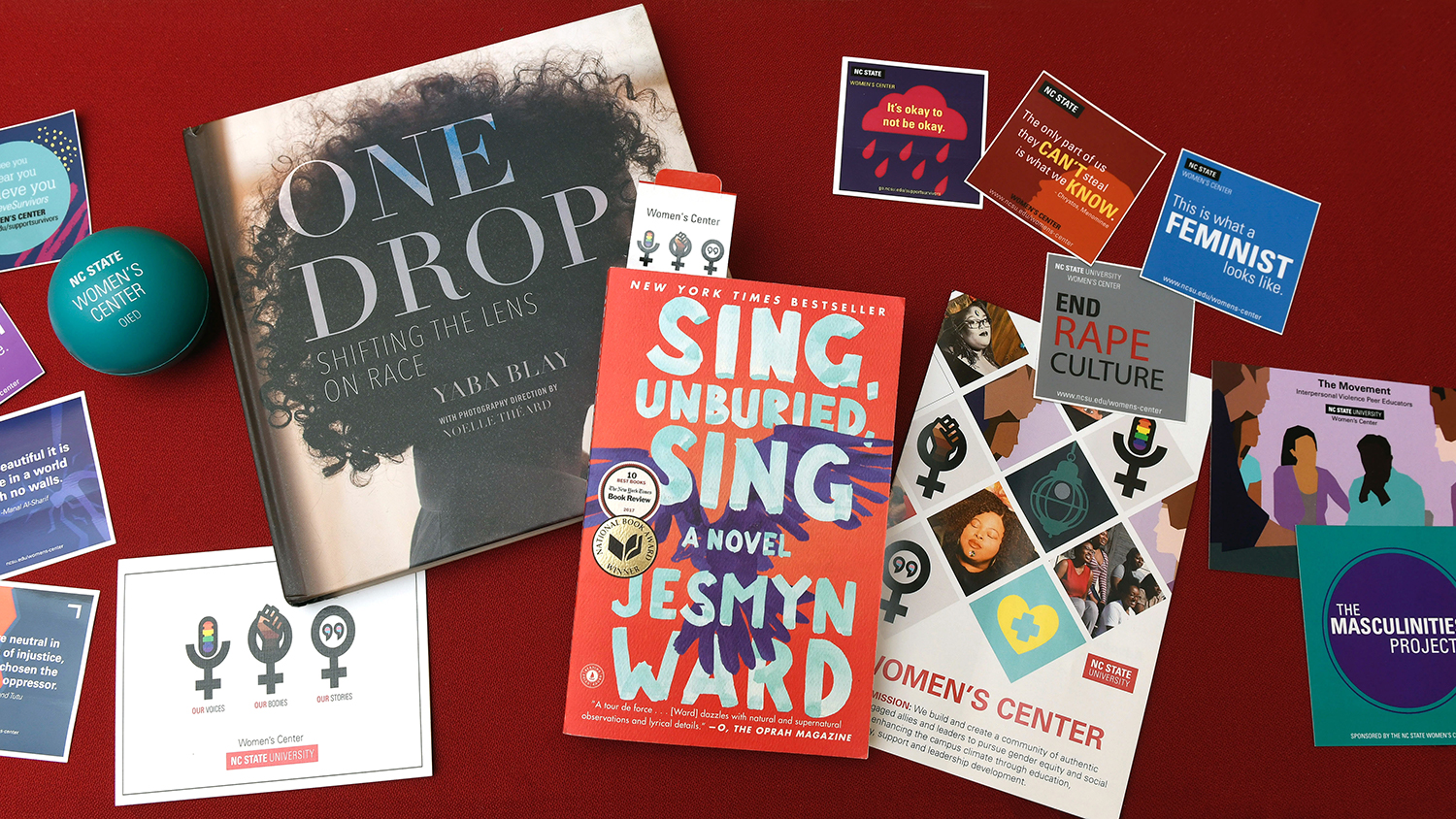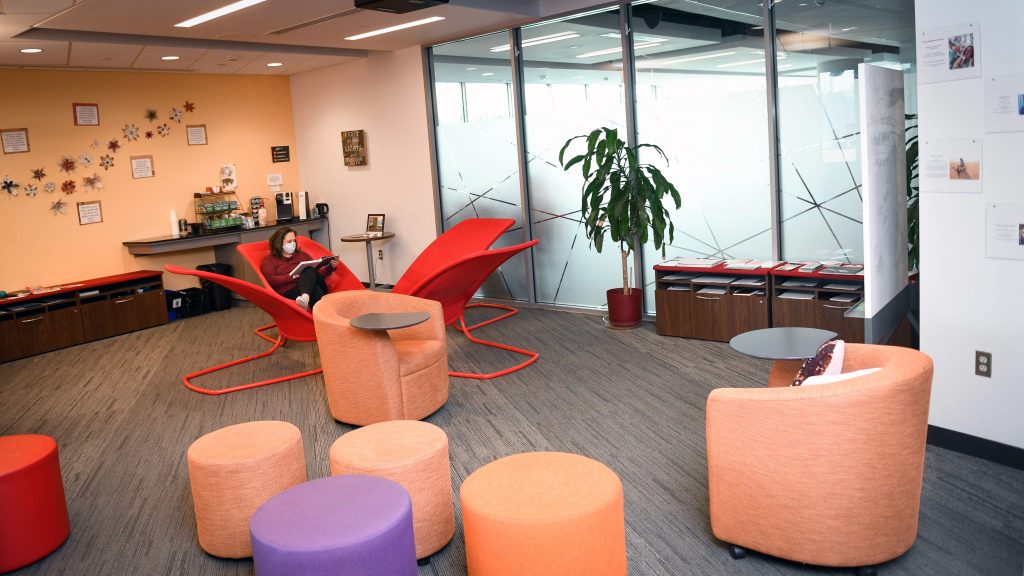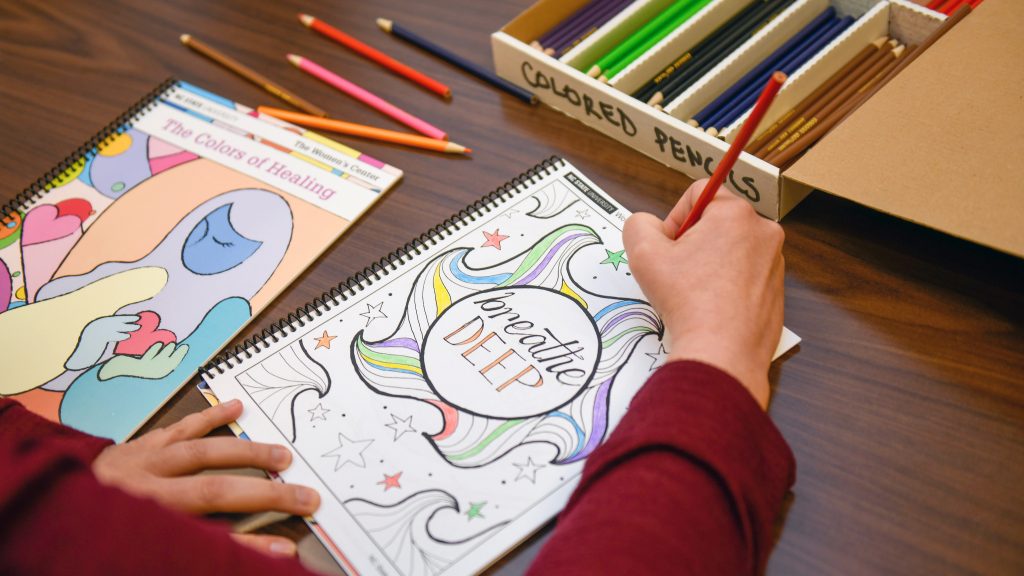Finding Your Wolfpack: The Women’s Center
For students passionate about gender and equity issues, the Women’s Center offers a community to learn, grow and build lasting connections.

When you ask director Lisa LaBarbera-Mascote and associate director Janine Kossen to describe the Women’s Center at NC State, you’ll get many answers: A supportive network. A place to engage in meaningful conversation. An avenue for challenging your thoughts and beliefs. A catalyst for learning and growth.
But most of all, you’ll hear them say that it’s a community.
“Anyone looking for that can usually find it here,” says Kossen.
Since its founding in 1991, the Women’s Center has united allies and leaders to pursue gender equity and social justice on NC State’s campus.
You’ll find the center’s home base nestled on the fifth floor of Talley Student Union. It’s a colorful, welcoming spot where students, faculty and staff gather to educate themselves, develop into leaders and gain the skills they need to advocate for a more inclusive university.

“Our community is filled with smart, intersectional thinkers who crave knowledge,” says Kali Fillhart, an anthropology and sociology student and the center’s student program intern. “They’re passionate and caring individuals who are always willing to adapt.”
Education. Advocacy. Support.
The Women’s Center provides vital support services for individuals experiencing interpersonal violence, along with holding events, trainings and workshops that encourage students to thoughtfully engage with issues of gender, equity and social justice.
There are larger signature events such as the Sisterhood Dinner, Take Back the Night and the Women of Color Retreat. Students can also participate in — and lead — scholarly discussions through the center’s Feminist Fridays event series and an annual Gender and Equity Research Symposium.
“We work hard to remind students that they’re teachers, too. Many of our programs put students in positions to present about their passion areas and engage other folks in dialogue,” says Kossen.
We work hard to remind students that they’re teachers, too.
During Domestic Violence Awareness Month in October and Sexual Assault Awareness Month in April, the Women’s Center also hosts monthlong events shedding light on interpersonal violence. And as we enter March, it will kick off a series of events for Women’s Herstory Month.
The most encompassing way to participate according to LaBarbera-Mascote? Smaller cohort groups, where students meet with the same individuals week over week.
“You can have deep conversation during the program, but also hang out afterward and make other connections,” she says.
Some cohort groups from the Women’s Center include:
- The Movement: a group of trained peer educators leading workshops on issues of gender equity, social justice and interpersonal violence.
- The Collective: a space for women of color at NC State to form a community and deepen relationships through facilitated conversation.
- Book clubs: weekly guided discussions focusing on a new book each semester. This spring’s book club selection is Sing, Unburied, Sing by Jesmyn Ward.
Tashana Flewwellin, a textile engineering student and president of The Movement, says that, along with opening her eyes to issues surrounding interpersonal violence, her involvement in The Movement has also fostered new relationships.
“It has allowed me to build connections with faculty and staff members, as well as my peers in my organization,” she says. “One of my closest friends now is someone I met through the Women’s Center.”
Together From Afar
Amid the COVID-19 pandemic, staff in the center have pushed beyond its four walls to translate their tight-knit community into the digital realm. And for students feeling isolated during remote instruction, it can still be a destination for finding strong, lasting connections.
To Flewwellin, involvement with the Women’s Center is one of the few things that helped her feel “normal” in a year that’s been anything but.
“Even though we’re meeting online, we’re still able to get the same community. We still have all of our major events virtually,” she says.
In fact, the broader accessibility of virtual programs has enabled individuals who don’t typically interact with the Women’s Center to start joining the conversation.
Even though we’re meeting online, we’re still able to get the same community.
As students spend hours a day on Zoom, though, the fatigue of virtual meetings can take a toll. But the Women’s Center team is uncovering ways to keep things fresh.
They’ve started offering packets filled with stickers, snacks and other supplies for students to pick up in advance of select programs so they can still engage physically. Last year, the group also organized a coloring book — made by and for survivors of interpersonal violence — to offer a grounding practice of mindfulness and self expression.

As part of longstanding collaborations with NC State’s three other campus community centers, the Women’s Center also participates in Community Connections. It’s a weekly virtual coworking space where students form bonds and meet with peer leaders and campus counselors.
Even something as simple as engaging with the Women’s Center’s social media channels and newsletter can help students feel connected to their Wolfpack from afar.
“We use our platforms to remind students of their value and their worth,” says Kossen. “Having that can be enough for students to say ‘I see this space is creating a sense of welcoming for me, so I’m going to reach out.’”
Get Involved
So, if you think you could find your Wolfpack in the Women’s Center, what’s the best way to get started? According to Fillhart, “just start showing up.”
“The Women’s Center is welcoming, and there are tons of ways to get involved,” she says. “I couldn’t ask for a better community to be a part of.”
I couldn’t ask for a better community to be a part of.
Students can expect a variety of virtual events over the coming weeks as part of Women’s Herstory Month, including a keynote on March 2 from Yaba Blay focusing on rest, revolution and liberation.

No matter how you join in, you’ll be met with a safe, supportive environment — whether it’s online for now or, down the road, in person.
“We try to show our students as much love and connection as possible,” says LaBarbera-Mascote.
“I love the community we’ve created and the support we’re able to provide for students,” adds Kossen. “It makes me feel good knowing we’re able to make that possible.”
- Categories:


